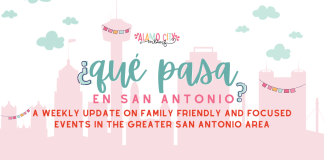With several holidays soon approaching, you might find yourself getting anxious as you think about the family interactions you’ll have or the misalignment between cultural expectations and how you’ve chosen to raise your kids. The stress of trying to remain respectful while also trying to advocate for your decisions (and ultimately for your children) can feel heavy during a time that’s supposed to be fun and lighthearted.
Whether you celebrate Mother’s and Father’s Day or not, it’s always important to have a plan for establishing boundaries with family members. As a parent coach and educator, I’ve worked with thousands of students, families, and educators to help them create clear boundaries that are aligned to their values. Here is a simple framework for confidently establishing boundaries while maintaining relationships with your loved ones. To help frame my examples, I’ll use the scenario of family members forcing physical affection when your child(ren) clearly doesn’t want to or is uncomfortable.
1. Give context.
First, let me say that you don’t have to explain yourself to anyone. However, if you’re like me and you are trying to help others understand your reasoning, start the conversation by giving some context around the situation. You can share as much or as little as you want, but consider sharing your WHY behind your reasoning or why it’s important to you in the first place.
“Tía Gloria, I know you love the kids and I’m so grateful that you want to show them love. Right now I’m working really hard to teach the kids to listen to their bodies and to only do things they feel comfortable with. This is especially important to me because they’re going to school and I want them to feel comfortable saying no and advocating for themselves if a peer, or even a teacher, crosses a body boundary. That practice starts at home, with family.”
2. Share your intentions or plans for what you’re doing.
Again, this portion is optional—you don’t have to share what you’re doing or what you plan to do to address it. If you choose, you can include your intended outcomes, what you’re actively doing, and your plans for addressing it in the future. This portion is more for others than it is for you, but if it’s family members that are often around your child(ren), it can be helpful for future interactions to give them some insight here.
“Right now I’m encouraging the kids to do what feels comfortable to them, whether it’s a hug or high-five or a wave. I’m confident that in time they’ll know what feels best for them. In the meantime, you might hear me say things like, Would you rather give a hug or a high-five? OR You don’t have to give a hug if you’re not ready.”
3. State the boundary (and the request).
This one is tricky because many of us were taught that boundaries are about what other people are or aren’t allowed to do, such as, “You can’t talk to me that way.” A boundary is more about YOU and what you are or aren’t willing to accept. In some cases, it might be what you are and aren’t willing to accept on your child(ren)’s behalf.
As you consider what the boundary will be, begin with a request and then ease into the boundary. “To make things a little smoother, I’m asking that when family members greet the kids they ask the kids directly if they’d like a hug or a high-five. I understand that this is your home, but I’m not willing to force the kids to do something they’re not ready to do on their own.”
4. Know the consequence of the boundary being crossed.
This part can be difficult for people and is often the part that gets left out. In my opinion, this is the most important part because it sets clear expectations of what will happen if your boundaries aren’t respected and can help maintain the relationship versus leading to resentment. Others might perceive it as a threat, but just like you share clear expectations with your kids, it’s equally important to share them with others in your life, including family. When thinking about what the potential consequence will be if your boundary is crossed, ask yourself this question: What action will I take to protect my peace and my kids?
Maybe it’s leaving; maybe it’s a last-minute decision not to attend a gathering. Whatever you decide, make sure you’ve thought about it beforehand so you can discuss it with your partner if necessary and know what action you’d like to take. While it’s important to know your boundary and what you’ll do, in my opinion, deciding whether or not to share this portion really depends on if this has been a pattern or if the person is insistent on crossing the boundary.
Should the person persist, this might sound like, “If you’re going to continue to hug the kids without their permission, we’ll have to leave. I’m not willing to force the kids to do something they’re not ready to do on their own AND I’m not willing to allow others to make them feel uncomfortable by doing something the kids did not agree to.”
I know this topic can get really uncomfortable, but I’ve found that when you know your boundaries and how you will communicate them, things are much more likely to go smoothly. There will still be family members, and others, who choose not to respect your boundaries, and it’s okay to do what’s in your family’s best interest. Remember, you don’t owe anyone an explanation for how you have chosen to raise your kids or what you’ve chosen for yourself. If you find yourself wanting to put forth the effort to do so, this is a great place to start, but it can also be used in pieces—use what resonates with you and leave out what doesn’t.
View this post on Instagram











